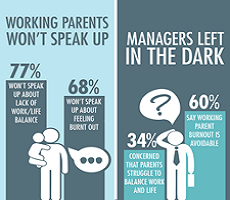October 13, 2015
Gateway cities spearheading a global commercial property revival 0
 Investment in commercial property is at its highest level worldwide since the 2008 downturn, according to a new report from Cushman & Wakefield. The firm’s annual Winning in Growth Cities report claims that global investment levels increased by 16 percent in the year to June 2015 to stand at US$942.8 billion. The report suggests that global volumes will rise 17 percent over the next twelve months to hit a new record high of $1.1 trillion. Growth will be led again by markets in North America and Europe with patchy levels of investment worldwide. This has already led to the world’s top 25 ‘gateway cities’ in terms of investment increase their market share from 51 percent to 53 percent with cities like New York remaining attractive locations for foreign investors.London was the second largest market overall but top for foreign investors, while Tokyo, Los Angeles and San Francisco made up the rest of the top five.
Investment in commercial property is at its highest level worldwide since the 2008 downturn, according to a new report from Cushman & Wakefield. The firm’s annual Winning in Growth Cities report claims that global investment levels increased by 16 percent in the year to June 2015 to stand at US$942.8 billion. The report suggests that global volumes will rise 17 percent over the next twelve months to hit a new record high of $1.1 trillion. Growth will be led again by markets in North America and Europe with patchy levels of investment worldwide. This has already led to the world’s top 25 ‘gateway cities’ in terms of investment increase their market share from 51 percent to 53 percent with cities like New York remaining attractive locations for foreign investors.London was the second largest market overall but top for foreign investors, while Tokyo, Los Angeles and San Francisco made up the rest of the top five.















 I was involved in a meeting with an office fit-out company this week which involved a discussion of how their clients can develop misconceptions about the extent to which their contemporaries are introducing new office design and management models based on agile working, shared space, mobile technology and all that other good stuff. This presents a particular challenge for firms in the sector because their day to day experiences of what clients talk about and ask from them can be pretty removed from the things talked about in the media. If you were to judge the state of the office solely on the basis of what you read and hear and see at shows, it would be easy to conclude that the office is indeed dying and dragging down with it the markets for office furniture, commercial property and traditional technology. The problem is that the facts don’t support that notion at all.
I was involved in a meeting with an office fit-out company this week which involved a discussion of how their clients can develop misconceptions about the extent to which their contemporaries are introducing new office design and management models based on agile working, shared space, mobile technology and all that other good stuff. This presents a particular challenge for firms in the sector because their day to day experiences of what clients talk about and ask from them can be pretty removed from the things talked about in the media. If you were to judge the state of the office solely on the basis of what you read and hear and see at shows, it would be easy to conclude that the office is indeed dying and dragging down with it the markets for office furniture, commercial property and traditional technology. The problem is that the facts don’t support that notion at all.


 A new study from US based technology research organisation ABI Research claims that sales of tablets as well as their worldwide user base will start to shrink next year for the first time. According to
A new study from US based technology research organisation ABI Research claims that sales of tablets as well as their worldwide user base will start to shrink next year for the first time. According to 
















October 12, 2015
How workplace design is more closely reflecting how we actually work 0
by Adrian Campbell • Comment, Flexible working, Workplace design
(more…)